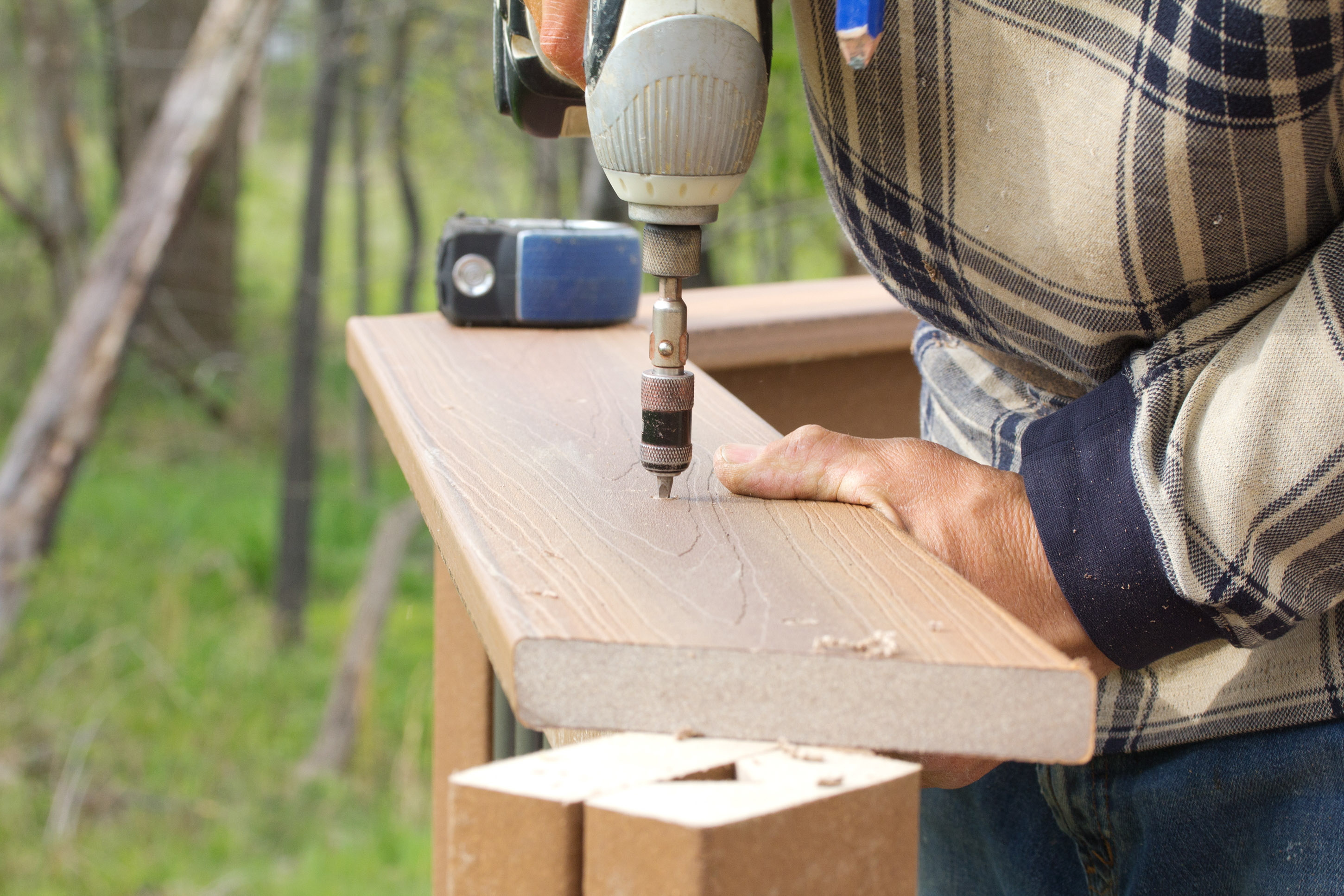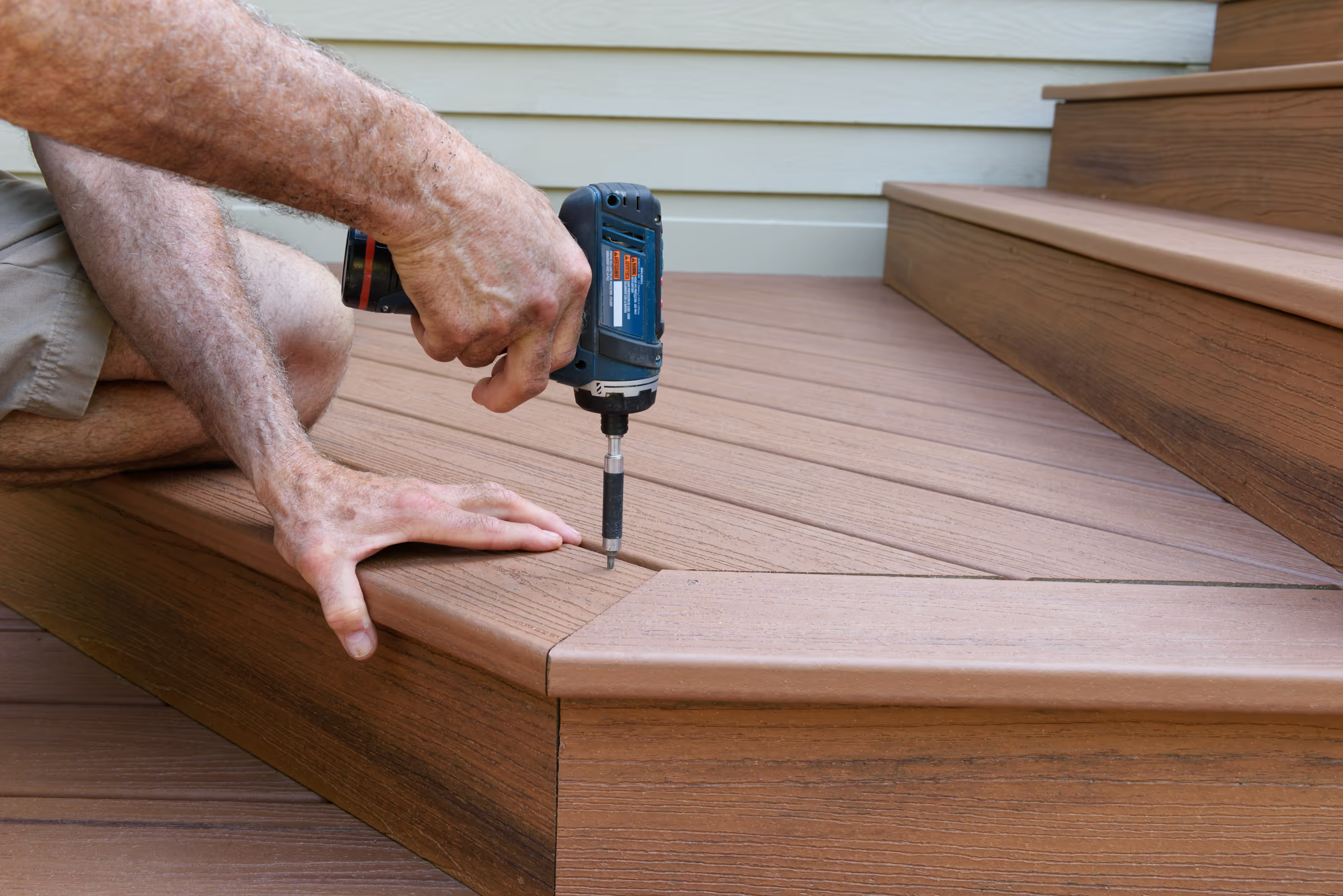Deck Repair vs. Replacement: When to Fix and When to Rebuild Your Deck

Standing on your aging deck, you're faced with a critical decision: invest in repairs or bite the bullet and replace the entire structure? This choice affects not just your immediate budget, but your family's safety, your home's value, and your outdoor enjoyment for years to come.
As professional deck contractors who handle both deck repairs and complete deck replacements, we guide homeowners through this decision weekly. Here's how to evaluate your deck's condition and make the financially smart choice.
Signs Your Deck Needs Attention
Critical Safety Issues That Can't Be Ignored
Some problems require immediate action, regardless of age or previous investments:
Structural Red Flags:
- Bouncing or swaying when walking
- Visible cracks in support posts or beams
- Loose or missing connection hardware
- Separation from the house structure
- Rotting or damaged footings
Safety Hazards:
- Railing height under 36 inches
- Loose or broken railings and balusters
- Protruding nails or screws
- Splintering boards creating injury risks
- Stairs with uneven risers or treads
Moisture and Decay Problems:
- Soft, spongy areas in decking boards
- Visible rot in structural members
- Persistent mold or mildew growth
- Insect damage or infestation
- Drainage issues causing standing water
If your deck shows any of these warning signs, professional evaluation is essential before the next gathering or storm season.
The Repair vs. Replacement Decision Matrix
Factors That Determine the Best Path Forward
Age and Material Type:
Wood Decks 0-10 Years:
- Usually good candidates for targeted repairs
- Focus on maintenance and problem-specific fixes
- Cost-effective to address individual issues
Wood Decks 10-15 Years:
- Evaluate structural integrity carefully
- Consider comprehensive repair vs. replacement
- Factor in ongoing maintenance commitments
Wood Decks 15+ Years:
- Often more cost-effective to replace
- Multiple systems typically need attention
- Opportunity to upgrade to low-maintenance materials
Composite/PVC Decks:
- Generally require minimal repairs regardless of age
- Most issues are installation-related, not material failure
- Replacement rarely needed before 25+ years
Structural Assessment Criteria
Foundation and Support Structure:
- Posts and footings in good condition = repair candidate
- Structural damage or inadequate sizing = replacement territory
- Code compliance issues = likely replacement needed
Decking Surface Condition:
- Less than 30% damaged boards = repair approach
- 30-60% damaged boards = evaluate replacement
- Over 60% damaged boards = replacement recommended
Railing and Safety Systems:
- Minor repairs and updates = repair route
- Major safety compliance issues = replacement consideration
- Complete railing system failure = replacement likely needed
When Deck Repair Makes Financial Sense
Scenarios Where Targeted Fixes Are Smart
Surface-Level Issues:
- Individual board replacement (under 25% of deck surface)
- Railing repairs or updates for safety compliance
- Staining or refinishing weathered surfaces
- Minor structural hardware updates
Typical Deck Repair Costs:
- Board replacement: $8-15 per square foot
- Railing repairs: $25-60 per linear foot
- Structural hardware updates: $500-1,500
- Complete restaining: $2-5 per square foot
When Repair Is the Right Choice:
- Deck is under 10 years old
- Structural components are sound
- Less than 30% of surface needs attention
- Budget constraints make replacement impractical
- Planning other home renovations within 5 years
Maximizing Repair Investment Value
Professional deck repairs should address:
- All safety compliance issues
- Structural integrity concerns
- Moisture intrusion prevention
- Future maintenance accessibility
When Deck Replacement Is the Better Investment
Indicators That Rebuilding Makes More Sense
Structural Concerns:
- Foundation or footing problems
- Inadequate structural sizing for current codes
- Multiple system failures occurring simultaneously
- Previous repairs haven't solved underlying issues
Cost-Benefit Analysis Triggers:
- Repair estimates exceed 50% of replacement cost
- Multiple major repairs needed within 2-3 years
- Ongoing maintenance costs becoming unsustainable
- Desire to upgrade to modern materials and features
Opportunity Factors:
- Home renovation or landscaping projects planned
- Desire for expanded outdoor living space
- Upgrade to composite or PVC materials
- Addition of features like lighting or built-in seating
Complete Deck Replacement Benefits
Modern Code Compliance:
- Updated structural requirements
- Current safety standards
- Improved connection methods
- Enhanced load-bearing capacity
Material Upgrade Opportunities:
- Low-maintenance composite or PVC decking
- Aluminum railing systems
- Integrated lighting and electrical
- Coordinated color and design schemes
Long-term Value:
- 20-30 year material warranties
- Minimal maintenance requirements
- Enhanced home resale value
- Decades of worry-free enjoyment
The Hidden Costs of Delaying Action
What Happens When You Wait Too Long
Safety Risks:
- Increased injury potential for family and guests
- Liability exposure for accidents
- Insurance claim complications from known hazards
- Building code violation citations
Escalating Repair Costs:
- Minor problems become major structural issues
- Weather damage accelerates deterioration
- Emergency repairs cost 2-3x planned work
- Multiple system failures require comprehensive rebuilds
Property Value Impact:
- Deferred maintenance reduces home value
- Safety hazards complicate home sales
- Buyers negotiate aggressively on visible problems
- Inspection issues can derail transactions
Regional Considerations for Minnesota Decks
Climate-Specific Factors in Repair vs. Replacement
Minnesota Weather Challenges:
- Freeze-thaw cycles accelerate structural damage
- Snow loads stress aging structural components
- Moisture penetration causes rapid deterioration
- Short construction season limits repair timing
Material Performance in Minnesota:
- Wood decks show significant wear by year 10-12
- Composite materials perform consistently regardless of age
- Structural hardware requires regular evaluation
- Proper drainage becomes critical over time
Seasonal Timing Considerations:
- Spring deck inspections reveal winter damage
- Summer repairs must address immediate safety concerns
- Fall preparations prevent winter damage escalation
- Planning replacement during off-season saves costs
Cost Comparison: Repair vs. Replace Scenarios
Real-World Examples from Recent Projects
Scenario 1: 12-Year-Old Wood Deck (300 sq ft)
- Repair option: $4,500 (40% board replacement, railing updates)
- Replace option: $12,000 (composite upgrade)
- Decision: Repair makes sense for budget-conscious homeowners staying 3-5 years
Scenario 2: 15-Year-Old Wood Deck (400 sq ft)
- Repair option: $8,500 (structural updates, 60% board replacement)
- Replace option: $16,000 (composite with aluminum railings)
- Decision: Replacement provides better long-term value
Scenario 3: 8-Year-Old Composite Deck (250 sq ft)
- Repair option: $1,200 (railing repairs, hardware updates)
- Replace option: $15,000 (complete rebuild)
- Decision: Repair is clearly the smart choice
Professional Assessment: What to Expect
How Professional Deck Inspections Work
Structural Evaluation:
- Foundation and footing assessment
- Support post and beam inspection
- Connection hardware evaluation
- Load-bearing capacity analysis
Surface and Safety Review:
- Decking condition documentation
- Railing safety compliance check
- Stair and access evaluation
- Code compliance assessment
Cost-Benefit Analysis:
- Repair scope and pricing
- Replacement options and costs
- Timeline considerations
- Long-term value comparison
Questions to Ask During Professional Assessment
About Current Condition:
- "What are the most critical safety concerns?"
- "Which problems require immediate attention?"
- "How much useful life remains in current materials?"
- "What caused the existing problems?"
About Repair Options:
- "What repairs are essential vs. optional?"
- "How long will repairs extend the deck's life?"
- "What ongoing maintenance will be required?"
- "Are there code compliance issues to address?"
About Replacement Considerations:
- "What would replacement cost vs. comprehensive repairs?"
- "What material options make sense for my situation?"
- "How would replacement improve safety and performance?"
- "What financing options are available?"
Making the Right Decision for Your Situation
Decision Framework Questions
Financial Considerations:
- What's your available budget for this project?
- How long do you plan to remain in this home?
- What other home improvement priorities compete for funds?
- Would financing make replacement more feasible?
Usage and Lifestyle Factors:
- How frequently do you use your outdoor space?
- Do you entertain regularly on the deck?
- Are there safety concerns with children or elderly family?
- How important is minimal maintenance to your lifestyle?
Future Planning:
- Are other home renovations planned?
- Would expanded outdoor living space add value?
- Do you want modern features like lighting or built-ins?
- How important is coordination with landscaping or home exterior?
Our Professional Recommendations
When We Recommend Repair
Based on our experience with deck maintenance and repairs:
Ideal Repair Candidates:
- Decks under 10 years with localized problems
- Structural systems in good condition
- Surface issues affecting less than 30% of deck
- Homeowners comfortable with ongoing wood maintenance
- Short-term home ownership (under 5 years)
When We Recommend Replacement
Complete deck replacement makes sense when:
Clear Replacement Indicators:
- Multiple structural concerns present
- Repair costs exceed 50% of replacement cost
- Desire for low-maintenance materials
- Long-term home ownership planned
- Safety compliance requires extensive updates
Your Next Steps
The repair vs. replacement decision shouldn't be made alone or based on appearance only. Professional assessment ensures you understand all options, costs, and safety considerations.
Ready for an honest evaluation of your deck's condition and options? Our deck inspection and consultation service provides detailed analysis of repair vs. replacement costs, safety concerns, and long-term value considerations.
Contact our deck repair and replacement specialists to schedule your assessment. Whether the answer is targeted repairs or complete replacement, we'll help you make the financially smart and safe choice for your family.
For more information, explore our guides on deck maintenance and composite deck benefits.



